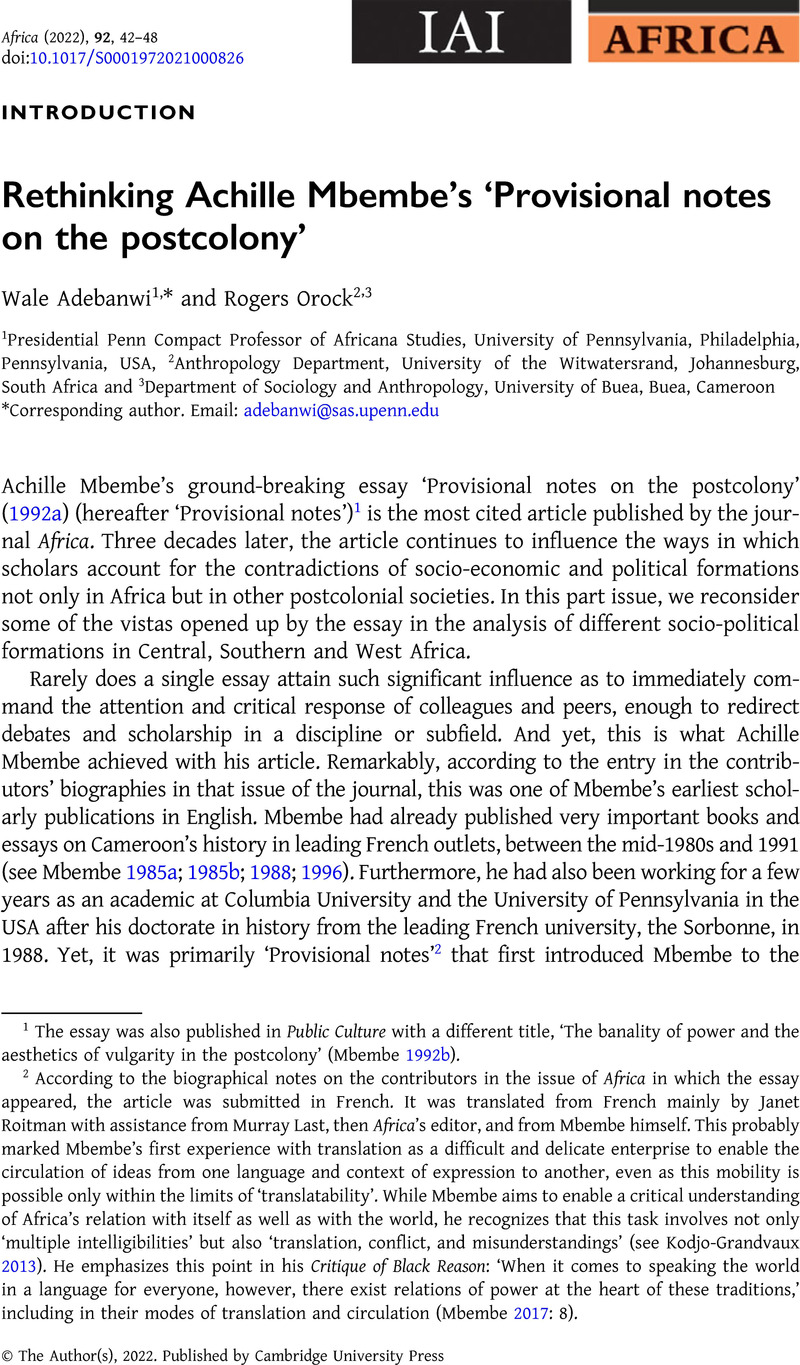Kodjo-Grandvaux, S. (
2013) ‘Achille Mbembe: “Nous devons créer pour nous-mêmes et pour les autres”’,
Jeune Afrique, 16 August <
https://www.jeuneafrique.com/136410/culture/achille-mbembe-nous-devons-cr-er-pour-nous-m-mes-et-pour-les-autres/>, accessed 10 April 2020.
,+accessed+10+April+2020.>Google Scholar
